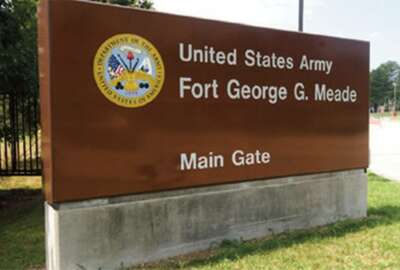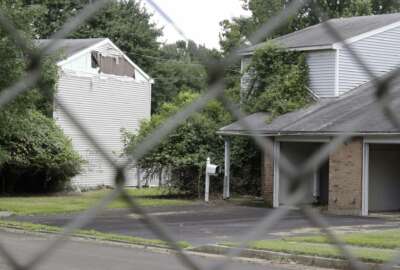
Final NDAA holds more than 50 provisions to fix military housing issues
The bill creates a tenant bill of rights and makes it easier for DoD to punish housing contractors.
More than 50 provisions emboldening the Defense Department to take action against privatized housing companies, empowering tenants and ensuring the safety of future military families living in homes owned by corporations got the go-ahead from House and Senate conferees last night.
The provisions range from establishing a tenant bill of rights to giving DoD more control over what it considers when deciding whether to renew a contract with a housing company or if that housing company is in breach of contract.
Lawmakers behind the bill are calling it a big step forward in protecting military service members and their families after nationwide reports of mice, mold, lead paint and other substandard living conditions in homes owned and managed by private companies working with DoD surfaced in February.
“The 2020 defense authorization bill empowers the commanders to be able to do more inspections, the inspector general to be able to do more inspections, and we are putting more money into the program,” Rep. Anthony Brown (D-Md.) told Federal News Network.
Sen. Tim Kaine (D-Va.) also stressed the importance of the bill.
“After seeing the horrific housing conditions that Virginia military families have dealt with, including mold issues that were making kids sick, I worked with my colleagues on reforms to make sure the families serving our country have safe places to live,” he said in a Tuesday statement. “I’m proud that we were able to once again secure key wins for Virginia’s defense community in the NDAA, and I hope we can get this final bill across the finish line without delay.”
The reconciled bill still needs to be passed by majority vote in each house and signed by the president.
Perhaps one of the most powerful tools in bill is the tenant bill of rights. The enumerated list of protections includes guaranteed access to an electronic work order system, the right to prompt repairs and the right to report inadequate housing standards.
The bill of rights was touted by lawmakers and the military services as must-need legislation, and the military service secretaries told Congress last week that they would be ready to implement it once it was signed into law.
The NDAA creates the position of chief housing officer in the military as well. That job falls under the defense secretary, and oversees the creation and standardization of policies and processes regarding housing units.
That position will work on creating standardized metrics and the collection of data on the houses through which DoD can make judgements on whether a company deserves its incentive fees. That’s particularly important because a Government Accountability Office report from last week stated the DoD has little insight into the condition of the homes and the data it does have on the houses is spotty. Furthermore, the metrics that are used can be misleading.
The NDAA requires the creation of a uniform code for the basic standards of privatized housing and for their inspections.
“This will give us an understanding base by base and house by house what the situation is,” House Armed Services Readiness Subcommittee Chairman John Garamendi (D-Calif.) told Federal News Network. “The metrics of the past simply didn’t show that and frankly in many cases those metrics were either incorrect or purposely incorrect.”
The NDAA creates a standardized dispute resolution process that protects tenants from retaliation, ensures they have a place to move when there is an issue with their homes, and withholds paying basic allowance for housing to companies until the dispute is resolved.
The bill disallows the use of nondisclosure agreements by companies in order for tenants to sign leases — a practice used by some management companies.
The NDAA allows service members and their families to see the maintenance history of a house, and to remain anonymous when asking for the information. There will also be move-in and move-out checklists for tenants so they are not docked for responsibilities they were unaware of.
The bill keeps DoD from paying incentive fees if a landlord has a propensity for failing to remedy hazards in a timely matter.
The NDAA also gives DoD more options for leaving a contract and more evidence to consider when doing so. DoD can now consider a contractors history when considering the renewal of a contract. DoD may also rescind a contract if a breach of contract is not taken care of in a timely manner.
Garamendi said it’s likely that DoD may leave some of its contracts.
“There are literally hundreds of contracts; almost everyone one of them unique,” Garamendi said. “It’s impossible to simply say ‘We are pulling out.’ We may or may not be able to without a very significant disruption not only in the housing issue, but also in our responsibility. What we really want to accomplish here is the owners of these houses perform in a way that provides quality housing for the military families. It may very well be that some contracts will be terminated, but given the number of contracts out there it’s inappropriate to say one or another is in line for cancellation. The thing that will definitely happen is the owners of these houses will be held accountable.”
Copyright © 2025 Federal News Network. All rights reserved. This website is not intended for users located within the European Economic Area.
Scott Maucione is a defense reporter for Federal News Network and reports on human capital, workforce and the Defense Department at-large.
Follow @smaucioneWFED
Related Stories






